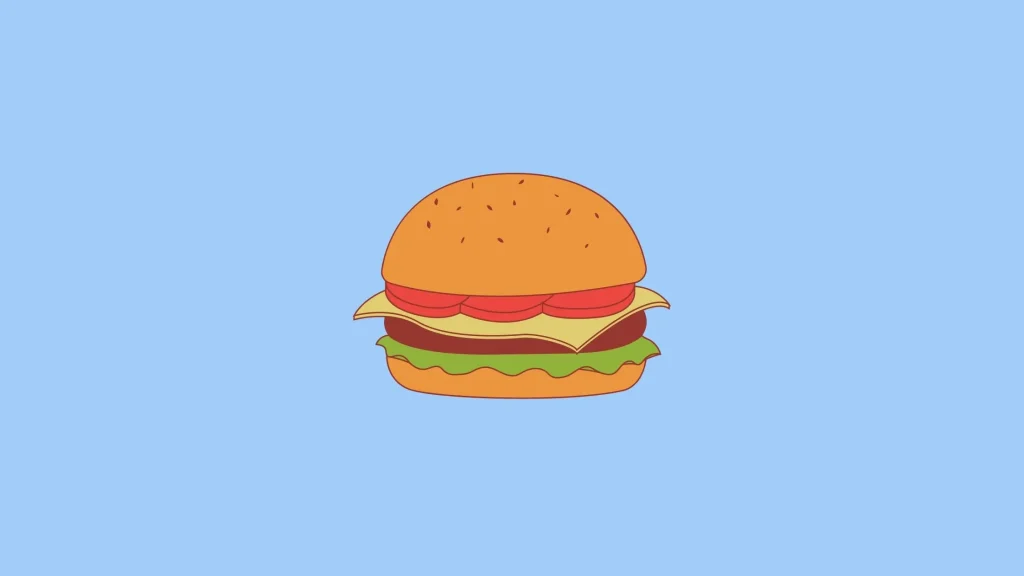Many of us have grown up in an absolute diet culture. If you’re like me, your mom was on weight watchers, and your dad ate whatever the hell he wanted.
I witnessed the insanity first hand of what obsessing over the scale and what you put on your plate can cause.
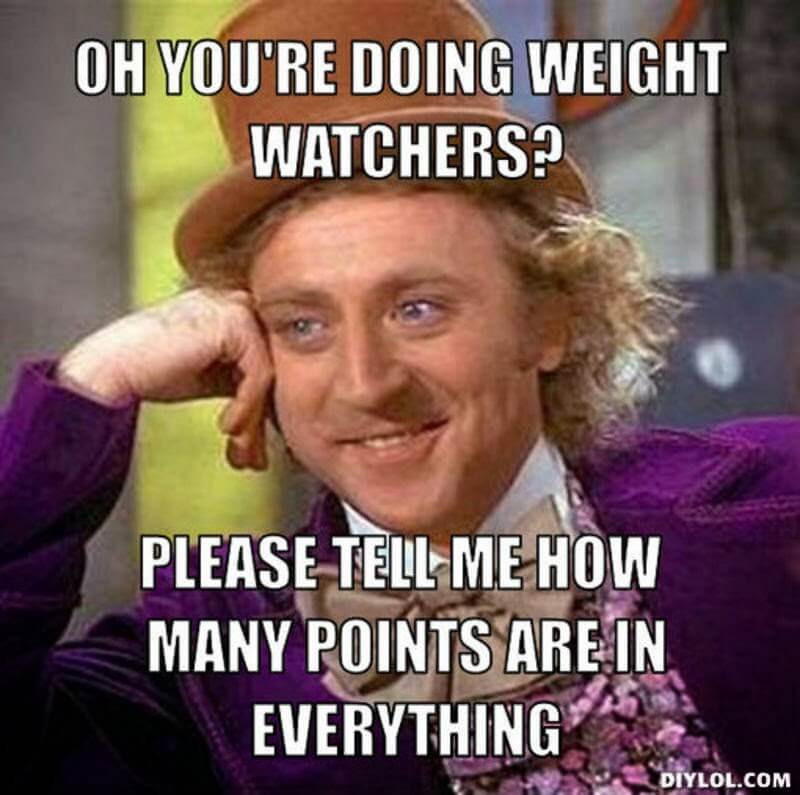
So did Weight Watchers work for my mom?
Yes, actually it did. She lost a respectable amount of weight, and usually fluctuates only about 5-10 pounds on average.
Weight watchers works, and I am not surprised. You know why? Because Weight Watchers applies the most important principle of all, ENERGY BALANCE.
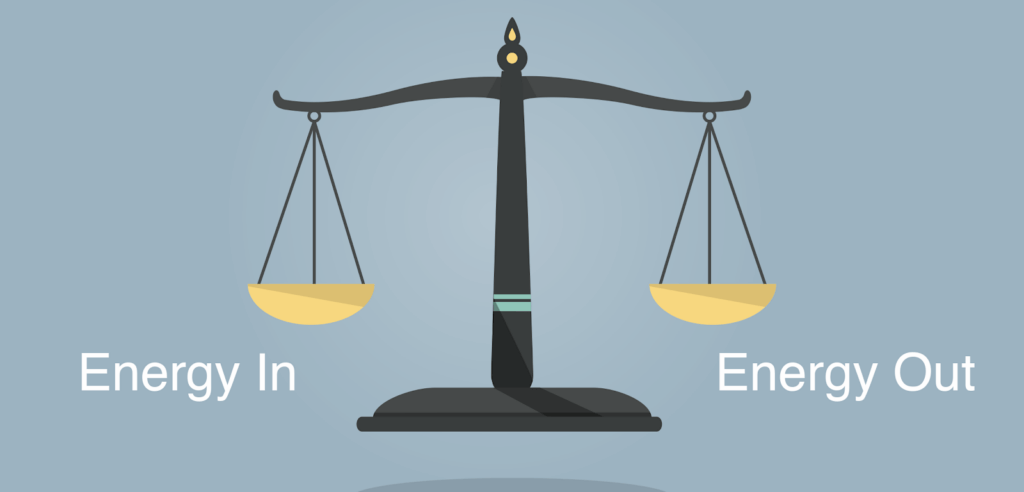
So, what exactly is energy balance?
To keep it super simple, energy balance just means calories in vs. calories out.
The calories we take in vs. the calories we burn through exercise and our daily bodily functions (digestion, repair, growth, etc…)
So, why is there even a question as to whether energy balance is the most important factor?
Short answer: marketing.
Well…you see, around 2017, the Ketogenic Diet appeared on the scene, and many marketers and proponents touted it as the “magic pill” for fat loss. Around this time last year, Keto searches outranked Paleo searches on google, we saw an influx of keto books flying off the shelves, and a booming industry of high fat snacks at stores like Whole Foods.
If you work at an office, you probably know someone you work with who has lost a TON of weight, and claims that they are feeling the best they’ve ever felt in their lives. This may be enough to think that you should try it, and see what happens.
Before you consider something like keto, I would recommend that you look at the fact that you will be cutting out a LOT of healthy foods for the sake of weight loss. Now, this may sound fine to you, but what if I told you that you could still enjoy fruit, rice, bread, pasta, pastries, cakes, and cookies, and STILL LOSE WEIGHT?
Sound too good to be true?
Trust me, it’s not, and I am not selling some sort of new diet plan. It’s not sexy, it’s not marketable, it’s a good ol’ fashioned CALORIE DEFICIT.
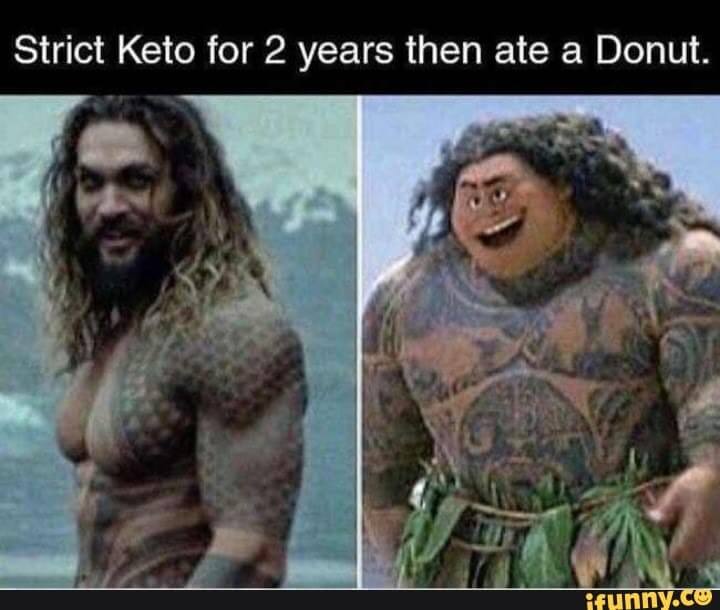
So, is calorie deficit better than keto?
I wouldn’t say it’s inherently better. You see, the reason keto works is not because it’s some magic hormone-optimizing godsend. It actually just puts you into a calorie deficit with minimal effort. The keto diet usually involves some fasting (period of starvation), followed by periods of eating high fat, satiating meals. Since fat is the highest in calories of all the macronutrients (carbs, proteins, and fats), it fills you up easily, and will keep you full for a long period of time.
The truth is, all diets work for the same reason. They put you into a calorie deficit. Any diet that is claiming to optimize your hormones, or reverse disease is most likely just using it as a marketing tactic to sell you something. You see, weight loss is a $72 billion dollar industry, and with that comes a lot of misinformation to people like me and you, in order to make money.
So, how do I find my energy balance if I am just getting started?
There are tons of calculators online to calculate your TDEE, or Total Daily Energy Expenditure. This is your Calories out. How many calories your body needs to perform daily tasks, and it even usually includes your exercise activity as well.
However, there is a MUCH simpler and pretty darn effective way of getting started right now. Here’s how:
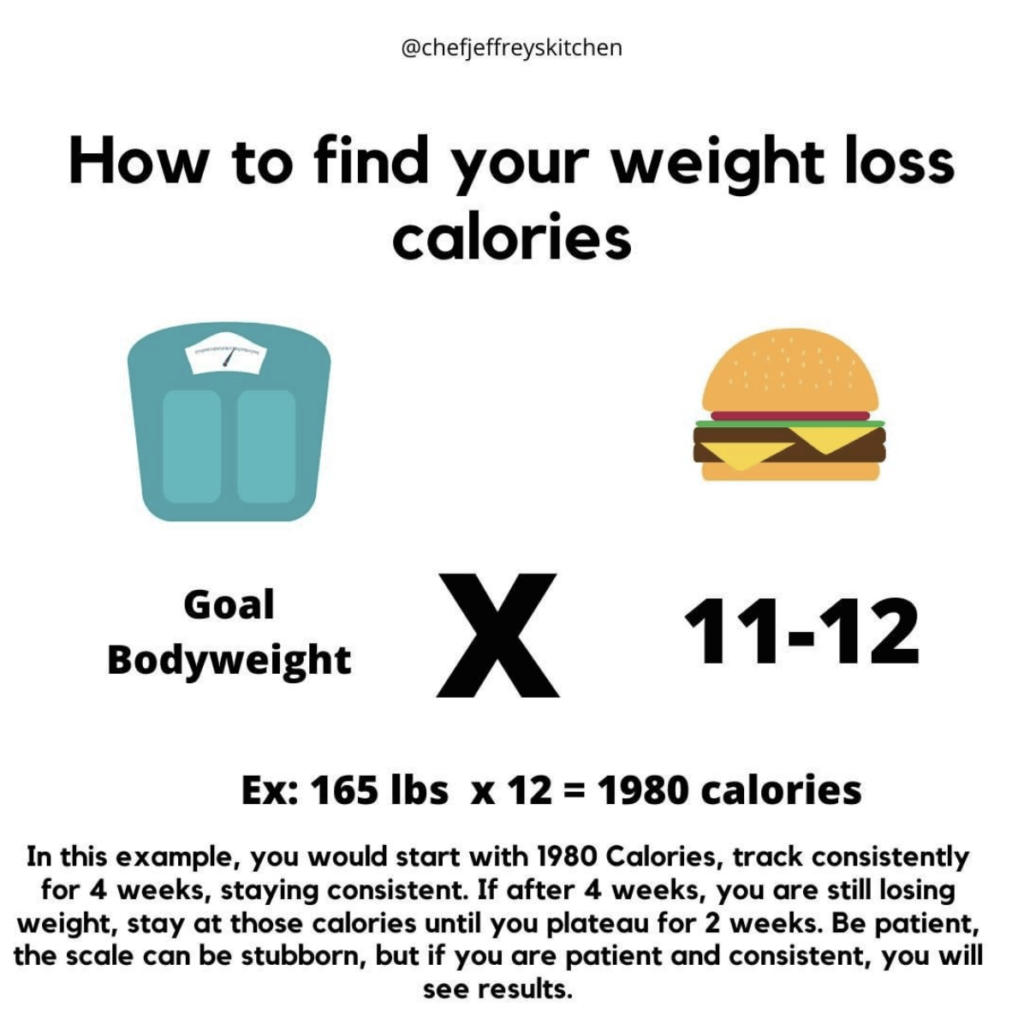
Take your goal body weight or GBW, and multiply by 11-12.
For example: I weigh 185 pounds, and would like to weigh 165. My deficit calories would look like this:
165 X 12 = 1,980 Calories
Once you have your deficit calories, you would start tracking your food. I am not saying that you have to weigh and measure your food out forever, or even that you have to weigh your food out at all.
Look at it this way, you have a speedometer in your car, and usually have a speed limit that you follow to the best of your ability. Now, are you constantly looking at that speedometer to check how fast you are going? Probably not. But when you first got your license and first started driving, I bet you did (even if you don’t remember).
This works the same way. You follow your calorie guidelines (the speed limit), using your food scale (your speedometer). Do this for the next 4 weeks, and you will have some seriously awesome data and good habits to keep going.
What if you don’t lose weight the first 4 weeks?
Well then, I have some questions for you before you start panicking or thinking that your metabolism is broken and buy a bottle of MCT oil…
- How often are you weighing yourself?
- When are you weighing yourself?
- Are you using other methods than the scale to measure your progress?
When my online coaching clients start working with me, a lot of them have some weird relationships with their scale. That’s understandable, I did too, and that’s why I developed this method which works wonderfully well:

Weigh yourself EVERYDAY. This one is extremely important due to the fact that when we weigh ourselves, we are simply collecting data. That means every morning, before you drink or eat ANYTHING, after you go to the bathroom, you weigh yourself, naked. Record it on a whiteboard or notepad, down the decimal point. Then, add the week’s worth of weigh-ins together, and divide that number by 7 to get your average weekly weigh-in. Compare your averages, week-by-week, and make sure you are losing around 0.5-1lbs per week. Do this for four weeks, regardless of whether you see a change from week-to-week, you should still see a difference of 2-5 pounds for the whole month.
What if my weight doesn’t change?
The most important thing to remember here is that weight loss takes TIME. The quicker you try to rush the process, the quicker you will gain it back.
Chances are if you are trying to lose weight, you are willing to go to extremes, and probably already have. However, studies have shown that extreme diets almost never work in the long run. One of the reasons why people give up these diets is the sheer boredom of following such a restrictive type of diet or their craving to get back to their normal diet habits.
If the results are not happening fast enough, you are probably either:
a.) Not being honest with how much food you are actually eating. You are binging, snacking, or not tracking miniscule calories from small amounts of oil and dressings.
OR
b.) You are not being patient. You should be following your calorie deficit number consistently for at least 4 weeks before you change anything. Remember that 0.5 to 1lb per week of weight loss is great progress, and even if you only lose 2 pounds in 4 weeks, you are actually doing it sustainably, and not crashing your metabolism or starving yourself.
Want extra help?
You can always email me at chefjeffreyskitchen@gmail.com with any questions you may have. I usually answer all of my emails within 24 hours.
I also offer 1 on 1 Online Weight Loss Coaching for a more in depth and personalized approach to your goals and needs. Shoot me an email about any coaching inquiries you may have!

